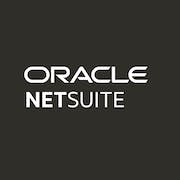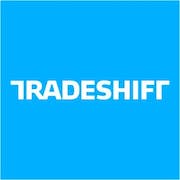Looking for the best supply chain management software? Our comprehensive buyer's guide has everything you need to know to make an informed decision. Find the perfect fit for your business today!
Supply chain management plays a crucial role in ensuring the success of companies. With an efficient supply chain process in place, companies can streamline their operations, reduce costs, and increase profitability. However, managing such processes manually can quickly become overwhelming, leading to inefficiencies and errors. That's where supply chain management software comes into play. By automating and optimizing these operations, these software solutions can help businesses achieve their goals more effectively. But with a wide range of different options available on the market, how do you know which one to choose? In this buyer's guide, we'll provide you with all the information you need to make an informed decision and find the best one for your business needs.
What is supply chain management software?
Supply chain management (SCM) software refers to tools that streamline supply-side activities in businesses with the aim of maximizing customer value and gaining a competitive edge. Simply put, these solutions automate the flow of goods and services from the point of origin to the point of consumption by tracking and managing inventory levels, shipment logistics, and order fulfillment. This tool includes a wide range of functionalities, such as planning, procurement, inventory management, and analytics, among others.
Its common use cases include:
- Inventory management: This solution enables inventory optimization, tracking, reducing overstocking and stock-outs, and minimizing waste.
- Order fulfillment: It allows automating of order processing, shipment tracking, and delivery optimization
- Manufacturing planning: It also automates production scheduling, optimizing resource allocation, and streamlining production workflows
- Procurement management: The software automates supplier management, contract management, and purchase order management
This technology is also used by any business that deals with physical goods or services. Software technologies like artificial intelligence, blockchain, robotics, 3D printing, and the internet of things are rapidly being integrated into supply chain management, further improving its efficiency and accuracy in optimizing business processes.
What are the benefits of buying a supply chain management system?
Companies must invest in technology that streamlines their operations, enhances their supply chain management efforts, and ultimately helps them consistently meet their business objectives. An SCM tool is vital in achieving this goal, as it offers a wide range of benefits. The advantages of implementing one extends beyond improving operational efficiency; they also lead to reduced overhead costs, increased productivity, and enhanced customer satisfaction.
Here are 6 key benefits of implementing such a tool:
- Improved inventory management: It enables companies to better manage their inventory levels, reduce excess stock, and only order what they need, which can lead to significant cost savings.
- Enhanced collaboration: The technology offers a centralized platform for businesses to manage their relationships with suppliers, distributors, and customers. This can help improve communication and collaboration between all parties involved, resulting in more efficient and effective supply chain processes.
- Increased efficiency: With an SCM software, businesses can automate many of their processes, such as order fulfillment, shipping, and warehousing. This leads to increased efficiency and productivity, as well as improved customer satisfaction.
- Better data analytics: The solution gathers data in real-time, allowing businesses to track KPIs related to their supply chain. This data helps businesses make informed decisions, such as identifying inefficiencies and resolving them before they become bigger problems.
- Cost savings: By improving inventory management, automating processes, and reducing inefficiencies, an SCM program can help businesses achieve significant cost savings.
- Scalability: Most of these solutions are scalable and can grow with a business. This means that as a company expands, its supply chain management system can also expand to accommodate the growing needs of the business.
10 key features of supply chain management software
This program has become increasingly popular in recent years as businesses strive to optimize their processes and respond to market trends more quickly. Here are 10 of its common features that can help businesses harness the benefits of this technology:
1. Inventory management: Advanced inventory management features allow businesses to track inventory levels in real-time, manage stock-outs, and improve demand planning and forecasting.
2. Supplier management: A supply chain solution enables businesses to manage and track the performance of their suppliers throughout the procurement process, allowing for improved supplier relationships.
3. Order management: With an intuitive order management feature, businesses can better manage and track orders and deliveries, reduce order cycle times, and improve customer experience.
4. Warehouse management: Efficient warehouse management is critical to successful supply chain operations. Features like automated picking, packing and shipping, and optimized storage management can save businesses time and money.
5. Shipping and logistics: A supply chain platform provides features that help businesses manage shipping and logistics more efficiently, including carrier management and tracking, shipment management, and cost optimization.
6. Demand planning: A supply chain management system can help businesses by providing better demand forecasting which analyzes historical sales data and market trends, allowing for more accurate inventory management and production planning.
- Production planning and scheduling: Accurate scheduling and planning are crucial to product development and production. Supply management software provides features for managing resources, optimizing production and scheduling.
8. Performance analytics and reporting: Supply chain management tools deliver real-time insights and analytics to businesses, supporting rapid decision making and enabling identification of performance trends
9. Collaboration and communication: It facilitates improved collaboration between departments and partners. It can enable quick resolution of supplier or shipment issues and better coordination of production and logistics teams.
10. Compliance management: Regulatory compliance is vital for supply chain planning at any scale. A supply chain program features enable organizations to ensure that all relevant regulations, legal requirements, and company policies are being met.
The optimal management of the supply chain provides companies with an advantage over their competitors. By investing in a high-quality solution, companies can take their supply chain management to the next level.
Top considerations when investing in an SCM tool
When it comes to managing your company's supply chain effectively, having the right technology in place is essential. However, identifying the right SCM application for your business involves understanding your unique needs and requirements. We will explore the key factors that businesses should consider when purchasing this platform.
1. Scalability: The first factor to consider is whether the SCM solution can scale with your business. As your company grows, your supply chain management needs will change, and your application should be able to accommodate these changes without causing disruption to your operations. Look for one that can handle a growing number of suppliers and customers and provides the flexibility to handle changes in future demand.
2. Integration: It's essential to choose a tool that integrates seamlessly with your existing systems. This will help to avoid data duplication and inaccuracies, streamline processes, and maximize the efficiency of your supply chain. Make sure it works with your ERP, WMS, and other critical systems.
3. Automation: Automation is key to an efficient supply chain. Consider a program that can automate routine tasks such as inventory management, order processing, and procurement. Automation not only speeds up processes but also reduces the likelihood of human error.
4. Visibility: Visibility into your supply chain is critical to making informed decisions and preventing disruptions. Choose a solution that provides real-time visibility into your supply chain, including supplier performance, inventory levels, and delivery status.76% of enterprises are embracing the digital revolution in supply chain management, seeking enhanced visibility and agility to navigate the dynamic business landscape.
5. Security: Your SCM platform should safeguard your business against unauthorized access, data breaches, and cyber attacks. Look for one that provides robust security features such as data encryption, user access controls, and regular vulnerability testing.
6. Ease of use: User adoption is a vital factor in the success of your SCM technology. Choose one that is easy to use, intuitive, and requires minimal training. This will help to ensure that your employees use the software correctly and effectively.
7. Customization: Also consider how much customization the application allows. Every business has unique needs, and being able to tailor the system to your specific requirements can be essential. Look for one that allows for customization of workflows, data fields, and reports.
Industry trends for supply chain management software
In 2024 and beyond, there are several software trends that will shape the future of supply chain management. Artificial intelligence and machine learning will assist in the real-time monitoring and optimization of supply chain operations. This technology will provide organizations with the capability to manage inventory more effectively, reduce costs and improve customer satisfaction.
Automation and robotics will also increase in popularity and adoption, with the use of autonomous vehicles and drones for warehousing and transportation. Blockchain technology will continue to ensure transparency, with the system's ability to validate and authenticate supply chain transactions. 5G networking capabilities will enable faster and more reliable communication networks, which will impact the delivery and distribution of goods.
Reporting and analytics will be critical in supply chain management, with the ability to provide accurate, real-time decision-making data. It is crucial for organizations to invest in these technologies to remain competitive in an ever-changing and disruptive marketplace.
Conclusion
In summary, supply chain management software has revolutionized modern business by enhancing efficiency, visibility, and control. The future of this technology is promising, with ongoing innovations enhancing its capabilities. By adopting the latest technologies, businesses can stay ahead in a rapidly evolving market and achieve smarter, more resilient operations. According to Statista's study, 57% of supply chain experts digitized their business processes recently and this percent is growing with years.










